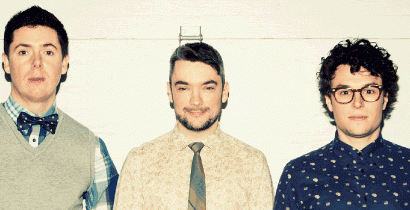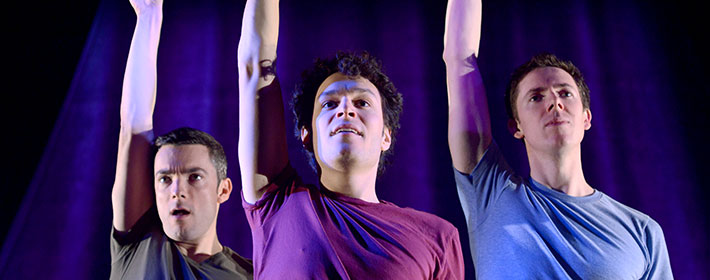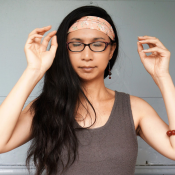Gein Wong joined the company this year as a co-curator of Insatiable Sisters. Gein was in the audience for the opening night of The Gay Heritage Project, and this is what she has to say about it.
We are a génération perdue – a term originally said by a garage owner who employed a mechanic that happened to fix Gertrude Stein’s car. Gertrude went on to say this term in the company of Ernest Hemingway, who then popularized it by using it in a novel. We are a lost generation.
I’ve always been a furrowed brow, chin scratching, take a walk in the snow eccentric deep thinker. Even when I was young. I remember when I was a teen and walking to the mall with a friend of mine. On this particular day, we were supposed to go the town centre, but didn’t want to wait 30 minutes for the bus so we decided to walk towards the train tracks and go to the mall. My friend was looking for some accessories, new earrings, a ring band she could wear to pretend she was married, and maybe, just maybe, some metallic nail polish. Actually, I wanted the nail polish, but I didn’t plan on buying anything, mainly because I was saving for that not too distant day that I would move out on my own.
Just as we crossed the tracks, I stopped. Metal rails under my feet, eyes looking far off into the horizon. I see nothing. Out of nowhere I blurt out “we are a lost generation!”, my voice loud as it is, echoing off in the skies. My friend turns around and just looks at me screwfaced. She says, “What are you talking about?” I say, “We don’t have elders to show us the way.” She says, “uh yeah we do, my entire family is here”. I say, “I’m not talking about family, I’m talking about…I mean, I’m talking about…” and then I stop, partly because I haven’t told her I was queer, partly because I had yet to hear the words “ancestral memory” and ‘chosen family’.
The Gay Heritage Project has so many things I could react to, scene after scene after scene of rapid-fire experiences that leave a lot to process and absorb. One thing that stays with me is the question “Where are our mentors?” In the play, it’s in reference to the generation that came of age just after the impact of HIV/AIDS in the ‘80s. And in many ways this question still resonates amongst an entire spectrum of age ranges. I asked this question to myself at 14 and I’ve heard it said over and over again in both queer and people of colour communities since then (and of course, the two communities aren’t exclusive). Where are our mentors? And perhaps more importantly, what type of people are we becoming without mentors, without receiving a collective knowledge base of history and wisdom? It’s an elusive thing to ponder – what greater heights could we have scaled if we just had a clearer connection to the past and more shoulders of glittering goddesses upon which we could stand.
There’s a reason queers have such great imaginations.
There’s a reason queer artists bust their butts so much to make things happen.
What seems like eons ago, I started talking about community arts in communities of colour and I often felt like people thought I was from another planet, they couldn’t see anyone putting in the amount work needed to create this dreamy sounding world where artists connected with youth and we taught each other amazing skills like how to fly. For me it was a relationship, not just over a 4-week workshop series, but over a lifetime. Now that youth arts programs are wonderfully commonplace, it seems the next big dream is imagining the kind of mentors and elders that we need in our communities and how it can shape the ways in which we treat and interact with each other. What could having more elders mean for us? The sage director and indigenous artist Yvette Nolan said it wonderfully “It’s not reverence for age-old wisdom; it is an understanding of the role that elders can play, have played in our societies. And an acknowledging that a person doesn’t just wake up one morning an elder, one has to work to become the elder we become.”
Along with being a deep thinker, I am relentlessly positive, endlessly hopeful that we collectively possess the physical and emotional capacity to make this mentor question as obsolete, but remembered, as mixtape cassettes. Mutual understanding over ageism, forgiveness over bitterness, the community over individual ego, chosen family over isolation.
What I like to do sometimes is imagine I’m back on those train tracks on my way to the mall and instead of looking down the tracks and seeing a vast horizon of nothingness, I try the best I can to see a beautiful and gentle future where our babies will never question the presence of mentors because they’ll have generations upon generations of chosen family. People who worked hard to grow into the most caring elders they could possibly be. Babies cared for by empathetic eyes, by queer hands holding them with all the knowledge that we are currently creating, rediscovering and learning amongst each other.
Related posts

A Bibliography of Gay Heritage



